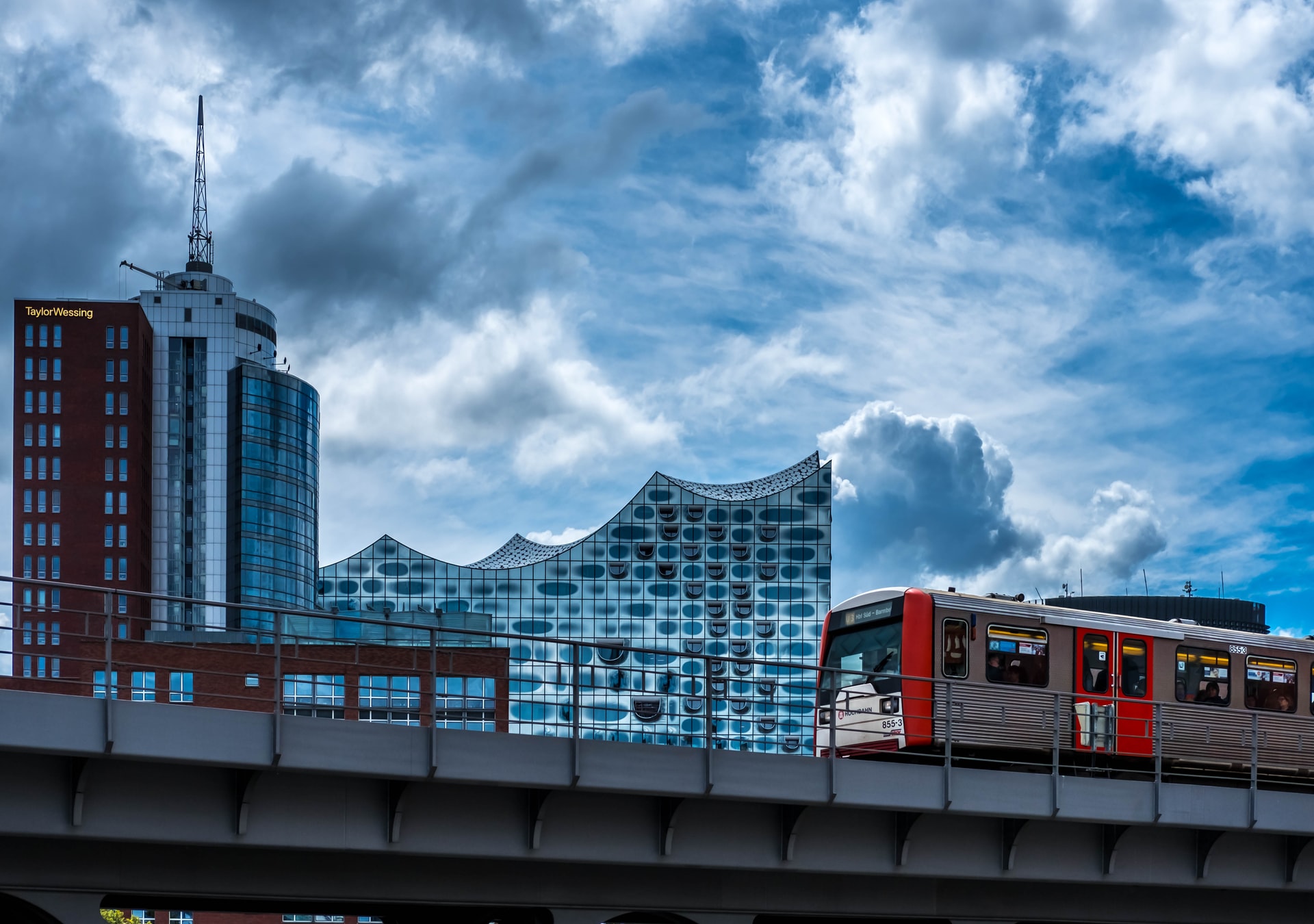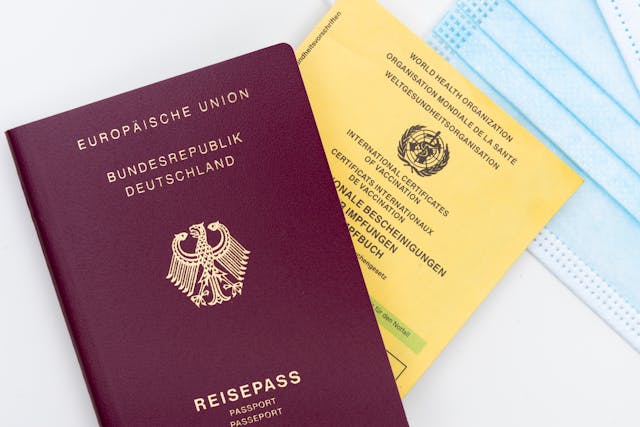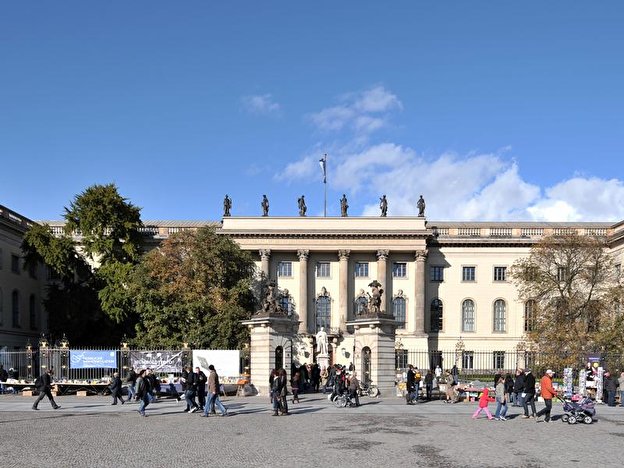1) Can I apply for German citizenship online in Berlin?
Yes. Berlin centralized naturalization under the Landesamt für Einwanderung (LEA) and now runs a full online application with a built-in Quick-Check that screens your basic eligibility before you start. You upload documents (PDF/JPG/PNG), pay the fee online, and receive a PDF confirmation. The LEA will contact you if they need anything else.
2) What are the new residency requirements (five years? three years?)
Since June 27, 2024, Germany modernized its citizenship law. In most cases you can naturalize after 5 years of lawful residence (down from 8). Unfortunately, the fast-track citizenship that was previously introduced in 2024 was abolished by the new government. Berlin’s service page confirms the 5-year rule and a 3-year route for those married to a German citizen.
3) Do I have to give up my previous citizenship? (Dual citizenship in 2025)
Often no. Under the 2024 reform, multiple nationality is generally accepted. You can usually keep your original passport when you naturalize, and Germans may acquire a foreign nationality without losing German. The Auswärtiges Amt and BMI confirm these changes. Always check your home country’s rules, since some countries still force a choice.
4) Which titles/residence statuses qualify and which do not?
Berlin lists qualifying statuses (e.g., Niederlassungserlaubnis, Erlaubnis zum Daueraufenthalt-EU, Blue Card, most regular Aufenthaltserlaubnis) and also enumerates non-qualifying sections of the Residence Act (e.g., certain study/training provisions, humanitarian temporary sections). Check your own title before applying.
5) What documents will I need?
Some of the documents you will need include: valid passport/ID, civil status certificates, proof of lawful residence, proof of health insurance, rental contract or Grundbuch for owners, B1 German (or qualifying substitutes), and proof of civic knowledge (usually the Einbürgerungstest/Leben in Deutschland certificate). Berlin lists acceptable alternatives for language and civic-knowledge proof (German schooling, German university degree, qualified vocational training, a German doctorate, or state licensure).
6) How does the online “Quick-Check” work and is it a guarantee?
The Quick-Check is a short eligibility screen bundled into the Berlin online application. It helps you decide if applying makes sense but it is not a decision. The LEA still conducts a full legal review once you submit everything. The federal Quick-Check disclaimer says exactly that.
7) What level of German do I really need?
B1 is still the baseline for most applicants. Berlin lists many ways to prove German (B1 certificate, German-language schooling, German degree, completed Ausbildung, etc.).
8) Do I need to pass the Einbürgerungstest or “Leben in Deutschland” test?
Usually yes (from age 16). The federal BAMF explains the test format: 33 multiple-choice questions, 60 minutes, and you must answer at least 17 correctly to pass. In Berlin, you can register via Volkshochschule (VHS) or accredited providers. (Note: some Berlin pages still show older “15/33” copy; BAMF’s current page shows 17/33.). Here is a guide on how you can easily book and prepare for the Leben in Deutschland test.
9) Where can I book the Einbürgerungstest in Berlin?
Bookings are typically made through the VHS network or accredited private schools (e.g., inlingua, Berlinek). Berlin’s Service Portal has a dedicated “Zum Einbürgerungstest anmelden” page with steps; inlingua Berlin publishes regular dates. Book early, sessions can fill fast.
10) How much does German citizenship cost in Berlin?
The naturalization fee is €255 per adult. Children naturalized together with a parent pay €51 each; if a minor naturalizes alone, it’s €255. Berlin requires paying the fee before you submit the online application (card/PayPal). Fee reductions or installments may be possible in hardship cases.
11) How long does it take in Berlin in 2025 until your application is approved?
Berlin entered 2024 with ~40,000 open cases moved to the LEA. The Service Portal warns of longer processing times and asks applicants to avoid status enquiries. Real-world timelines vary widely depending on your case and completeness of documents. However, according to many cases posted on social media such as Facebook group called “Einbürgerung in Berlin” – many people got their citizenship between 3 months and 12 months. This range is still considered one of the fastest in Germany. In some exceptional cases, some people got their citizenship in less 2 months or after 20 months.
12) Can I include my spouse or children on my application?
Adults (including spouses) apply separately. Children under 16 can be included in a parent’s online application, but children 16+ must submit their own. You’ll need the other parent’s consent if you share custody. Fees differ for minors.
13) What about income, benefits, and “secure livelihood”?
You generally need to secure your own livelihood (and dependents’) without relying on certain social benefits at the time of decision. The federal sites outline this requirement alongside identity/residence, language, civic knowledge, and law-abiding conduct. Berlin will ask for insurance proof, employment/contract info, and sometimes a tax clearance certificate.
14) I’m married to a German, does that change the rules?
Yes. Berlin explicitly notes a 3-year path to citizenship when you’ve been married to a German (or in a registered partnership) for at least two years, assuming other conditions are met. Language and livelihood requirements still apply.
15) I’m a Blue Card holder / skilled worker. Anything special?
Blue Card holders and most employment-based residence titles meet the “on-going right of residence” condition if you otherwise qualify on years, language, etc. Certain non-qualifying titles (e.g., some study/training/humanitarian provisions) do not count for standard naturalization claims; Berlin lists the sections explicitly on their service page.
16) How do I prove “knowledge of the legal and social order” if I studied in Germany?
Berlin gives multiple alternatives to the test: four years of successful German schooling, a German Berufsausbildung, a German university degree, a German doctorate, or a state licensure (Approbation). If one of these applies, you typically don’t need the Einbürgerungstest.
17) What happens after I submit? Will there be an interview?
After you submit, LEA reviews your file and may ask for additional documents. Once everything checks out, you’ll receive an appointment for the final steps. Berlin notes that because of demand, scheduling can take time. Some states do interviews case-by-case; Berlin focuses on the online file first and in-person only when needed (and at the citizenship ceremony). Berlin does not conduct citizenship interview before handing over your citizenship certificate (Einbürgeringsurkunde) to you.
18) How many people naturalized recently, what does that mean for queues?
It’s a busy landscape. 2024 saw a record 291,955 naturalizations across Germany (+46% year-over-year). Berlin is scaling digital workflows, but high volumes still affect timelines; submit complete, well-labeled files to avoid delays.
19) Can I travel or move during the process?
Traveling within Schengen or abroad usually isn’t an issue, but you must maintain lawful residence in Berlin and keep your registration (Anmeldung) current. If you move out of Berlin, you may need to switch jurisdiction and your new authority will pick up the file—expect extra time. (Berlin emphasizes that your residence status doesn’t change just because you applied.)
20) What are the most common mistakes that slow down a Berlin application?
- Uploading incomplete/illegible scans or exceeding file-size limits (Berlin caps total at 100 MB; single files max 7 MB).
- Skipping the accepted proofs (e.g., submitting a non-recognized language certificate).
- Benefits or tax issues not clarified up front (Berlin may ask for insurance confirmations and tax certificates).
- Not reading the non-qualifying residence titles—some titles don’t count toward a standard claim.
- Status emails—Berlin specifically says to avoid status enquiries due to heavy backlogs.
All of these are called out on Berlin’s official service pages. Nevertheless, you will not be penalized for asking for status update but they will ignore you. This may lead to unnecessary anxiety.
Bonus: The Einbürgerungstest in Berlin; quick facts & tips
- Format: 33 questions, 60 minutes, pass with 17 correct.
- Where: Berlin VHS locations and accredited private centers (e.g., inlingua, Berlinek).
- Booking: Use the Berlin Service Portal guide to sign up; bring your booking confirmation and an ID on test day.
- Prep: The BAMF item bank is public—you can practice the exact style of questions online. Additionally, go to Play Store or AppStore and download an app that shows you all the 310 questions in your favorite language such as English or Spanish. This is highly recommended way to practice. Please note that the real exam is only available in German. We recommend you practice using German.
- Results: BAMF publishes which session dates they’re currently processing; timelines vary but are often a few weeks to a few months.
What to expect in 2025 (and how to set yourself up for success)
- Dual citizenship is now standard. Ensure your home country allows it and whether you must complete any declarations there.
- Five-year rule is the norm; 3-year fast track citizenship no longer exists. Keep evidence tidy.
- Berlin’s online process reduces in-person trips; submit clean, labeled, legible PDFs and answer every question in the e-form. The smoother your file, the fewer call-backs.
- Plan your test early if you need one—exam slots can book out quickly.
- Budget: €255 per adult and, where applicable, €51 per child naturalized with you; test and certificate fees are extra.
Summary of the Citizenship Checklist (Berlin, 2025)
- Run the Quick-Check and verify you meet the 5-year rule (or 3-year for those married to a German).
- Gather documents: ID/passport, residence proof, insurance, rental/ownership proof, B1 or alternative, civic-knowledge proof (Leben in Deutschland or alternative).
- Apply online via the LEA portal; pay the fee before submitting.
- If needed, book the Einbürgerungstest (VHS or accredited centers).
- Wait for LEA review; respond quickly to any document requests; expect longer processing times.
- Attend your final appointment/ceremony once approved.















Leave a Reply